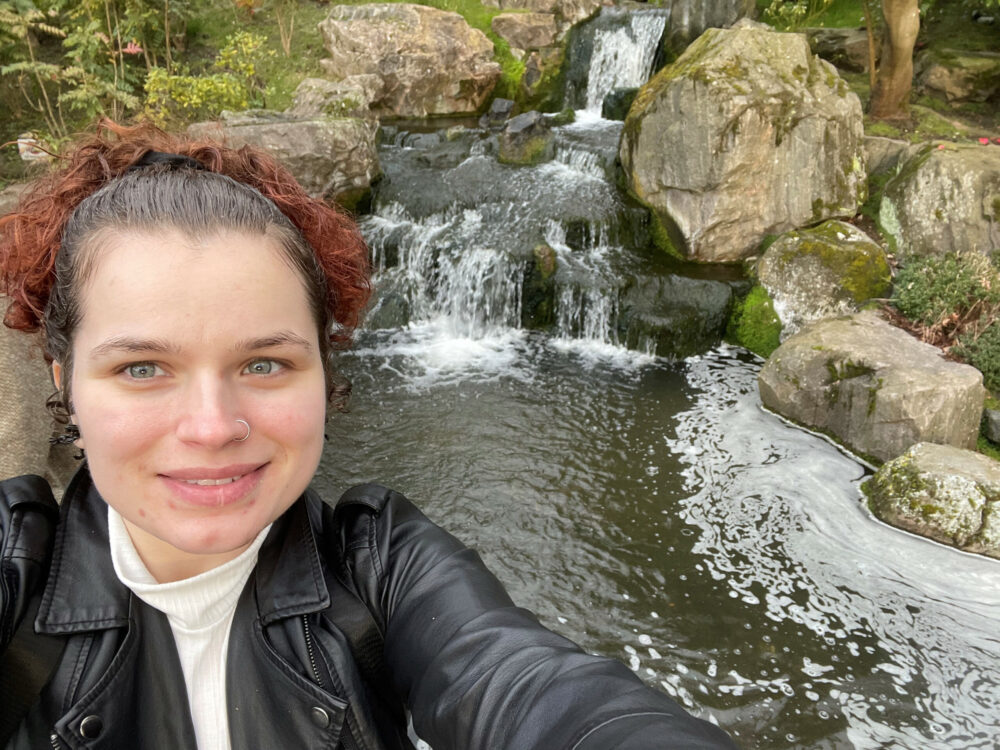When Agne Verescagina first heard about the Centre for Accessible Environment’s (CAE) Pathways Academy, she didn’t expect it to have half the impact that it did on her skillset.
CAE’s Pathways Academy was created to give young disabled Londoners the confidence, skills and support they need to kick start their career in inclusive design and access.
Now, over one year on, Agne has benefitted from an array of new skills, including audit writing, digital inclusion and designing for neurodiversity.
Balancing university and Pathways
Agne has been studying Psychology and Counselling BSc at Open University for the past 2 years. When the opportunity to join Pathways came up, she thought it would be a strong counterpart to her degree.
“I’ve always wanted to work in inclusive design so the Pathways Academy was the perfect course to go hand in hand with my degree which didn’t include anything on access or disability inclusion”, Agne says.
“And while, my Psychology degree, focuses more on theory and reading, the Pathways programme is filled with exercises and interactive activities.”
While Agne’s university course is virtual, just like Pathways, it’s not accessible enough for her.
“I feared the Pathways programme would be riddled with the same accessibility barriers as my degree. When I would attend my Zoom university classes, there was always issues, with cameras being off or lack of transcription for those who are visually impaired.”
“I was glad to find that the Pathways’ trainers made a proactive effort to make the programme inclusive for all its students. The trainers also ensured no-one was left behind and answered any questions from students.”
Highlights of the programme
The Pathways programme is split into 11 modules across 12 months. Students have two days of training per month, equating to 22 days across the year.
“It is a rich course with useful content and exercises, but a key part for me was learning how to write and construct audits. Whether someone uses it for inclusive design purposes or just general architecture, audit writing is an extremely useful skill to have,” said Agne.
Life after Pathways
The programme has prepared Agne for a career in inclusive design, but she believes that her new skills will benefit more than just disability roles and organisations.
“I’d like to think that I can use the skills I’ve learnt in Pathways in any future role I work in, even if it’s not related to disability. I should be able to join any organisation and hopefully make it more accessible for staff and customers.”
“I’d really be keen to use what I’ve learnt to make an impact in the mental health sector. As someone who has used mental health services before, I’ve seen first-hand where it falls short for disabled people. There is not enough attention being given to invisible disabilities and proper signposting at facilities isn’t common.”
“I hope my new skills will allow me to bring more of what is missing for disabled people in these services.”
Find out how to sign up to CAE’s 2021 Pathways programme at http://cae.org.uk/our-partners/pathways/

